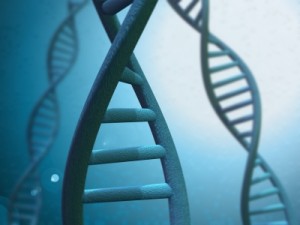Blogger: Vibeke Videm
We have known for some time that genetics play a great part in the risk for developing ankolysing spondylitis (Bekhterev’s disease), which leads to inflammation causing pain and stiffness of joints – especially in the back and pelvis. Through an international research collaboration studying genetic material from more than 10,000 patients with ankylosing spondylitis, 13 new genetic loci have been identified that affect the risk for the disease. This is a doubling of the number of known genetic risk loci. The results have recently been published in the journal Nature Genetics.

From the 70s it has been known that almost all patients with ankylosing spondylitis have a genetic variant called HLA-B27.
An Australian research group lead by Professor Matthew Brown at the University of Queensland in Brisbane, Australia, was very positive to including patients from the Nord-Trøndelag health study (HUNT) in Norway. Through the questionnaires from HUNT, we have access to far more information about lifestyle factors than what is common in such international genetic studies. As only a fraction of those with the genetic disposition for ankylosing spondylitis actually develop the disease, we believe that lifestyle factors may also affect the risk. We are therefore now conducting follow-up studies on the HUNT data to investigate this connection further.
The HUNT participants have given us an invaluable contribution, for which we are very grateful.
The fact that so many people from the county of Nord-Trøndelag have contributed to HUNT, and done so repeatedly, means we have data on the impact of changes in lifestyle factors over long periods. The HUNT participants have given us an invaluable contribution, for which we are very grateful. We are now counting on HUNT4 taking place, and hope for an equal willingness to contribute.
From the 70s it has been known that almost all patients with ankylosing spondylitis have a genetic variant called HLA-B27. The connection between ankylosing spondylitis and HLA-B27 is actually one of the strongest known genetic associations for common diseases where more than one gene plays a part. The knowledge of several more risk genes forms the basis for the development of new medication which can slow the inflammation by affecting the underlying mechanisms.
Researchers from 17 countries in Europe, East Asia, North America, Australia, New Zealand and Latin America have collaborated on the new study. Because the impact of each individual genetic risk variable is small and the interaction between them is complicated, we need very large patient numbers to establish clear patterns. This underlines the benefit of international collaboration – this type of knowledge is impossible to obtain through single group efforts.
